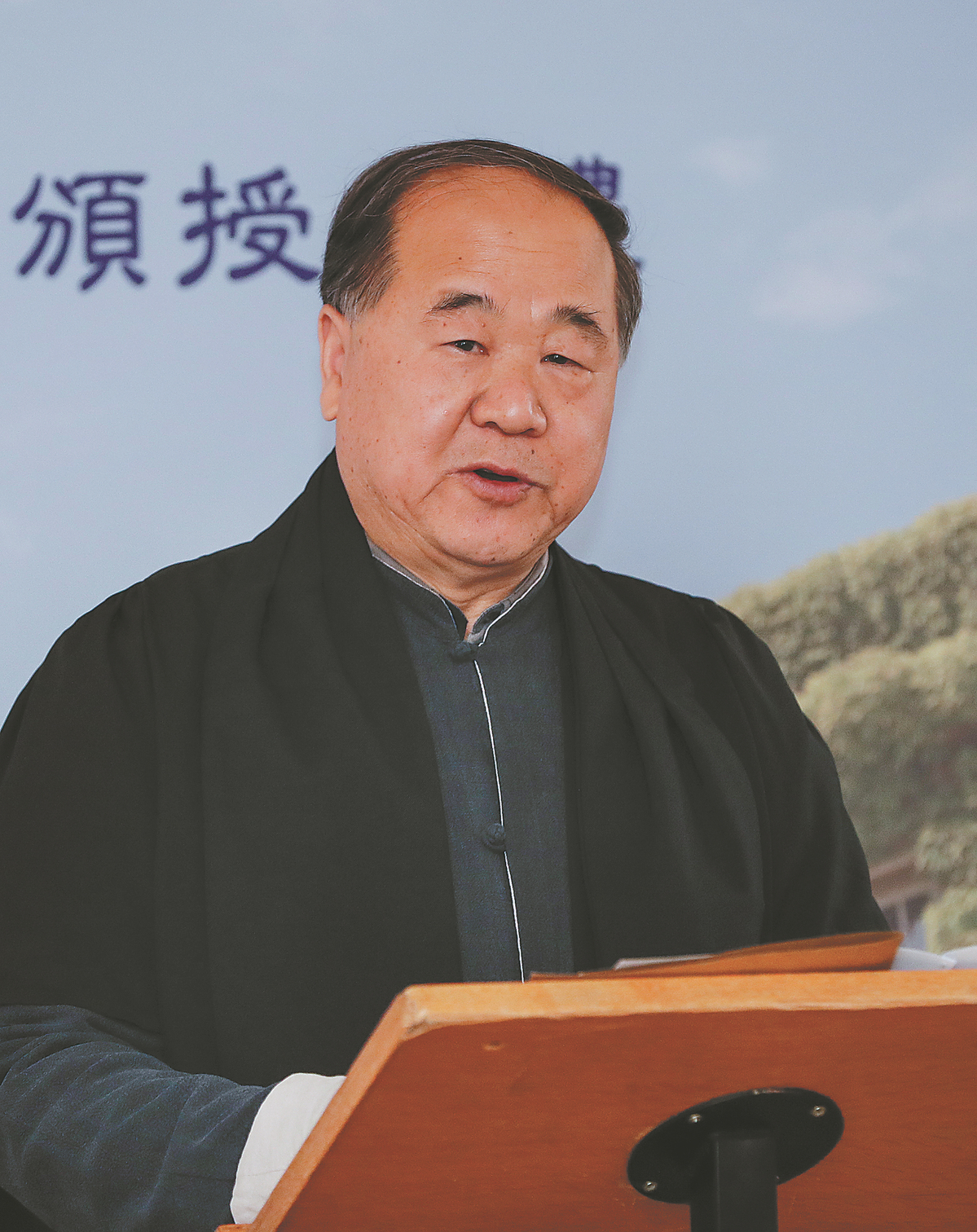

Nobel Prize Laureate Mo Yan recently published an article on his WeChat account clarifying that many poems and articles apparently signed with his name online were actually not his works.
Apart from a 32-second video, which in an amusing way shows the writer's confusion, a handwritten letter is also posted, in which Mo replied to a reader named Lin Quan, who asked him whether a poem titled On Wine and Beauty was written by him.
"Let me explicitly tell you, it's not my work, just like the poem How Wonderful It Will Be If You Can Understand Me, which I think is quite good. I admire the talent of these writers and also feel pity that they give up their copyright. To be honest, I once even received royalties for the poem when it was chosen for the textbook of a university, about 400 yuan ($59.3). I hope that the poem's real creator can claim his or her 'child' as soon as possible, as well as the royalties. In the history of modern literature, there have been many poets who gained fame for just one poem. It's a shame that such a good poem is put under another person's name and drifts online, homeless. Another example is I, a poem full of wisdom. A lot of elderly people love it," Mo writes in the letter.
"There are more works and quotes under my name online, but I can't list them one by one here, due to the limits of the letter. These talented writers are good enough to publish their works in their own names. Using my name is not fair to them," he continues.
There is also an article titled I Am Only Responsible for Two Kinds of People online that is said to be Mo's. Mo denies that it is.
"But some people criticized me because of it. I was speechless," he writes.
In 2020, Mo wrote a novella Hongchun Lyuzui (Red Lips and Green Mouth) that was included in his latest book A Late Bloomer, in which he created a "troll" that fabricated fake news online.
"You can take a look at that novella," he writes at the end of the letter.
Mo is not the first famous Chinese writer to face this issue. In 2017, Beijing Lu Xun Museum released a database where people can check whether certain quotes are truly by Lu Xun, one of the most influential modern Chinese writers.